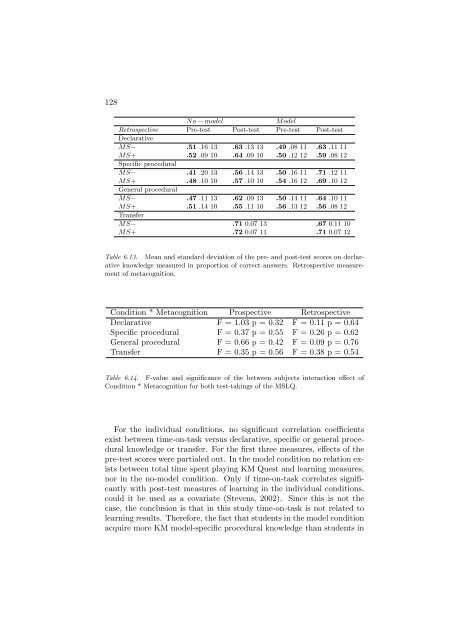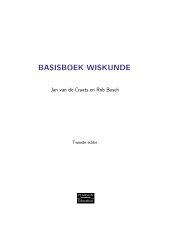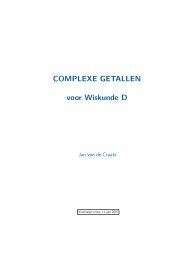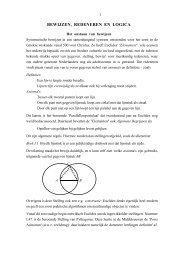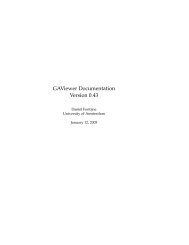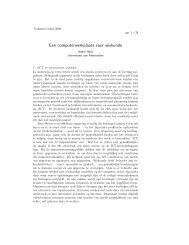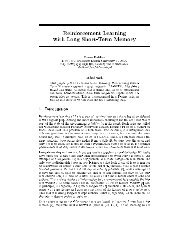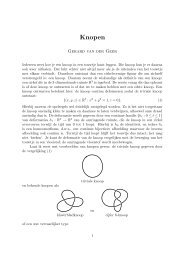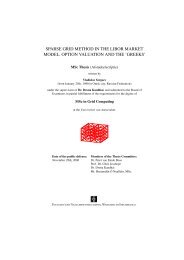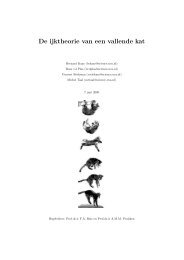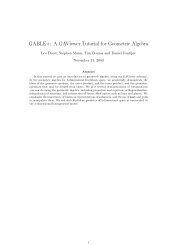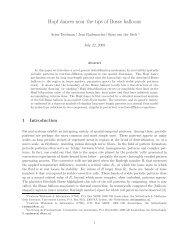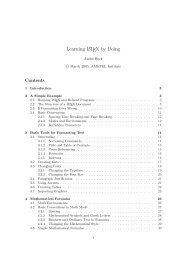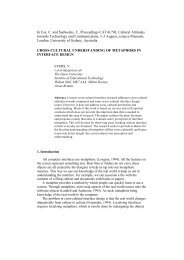The role of metacognitive skills in learning to solve problems
The role of metacognitive skills in learning to solve problems
The role of metacognitive skills in learning to solve problems
Create successful ePaper yourself
Turn your PDF publications into a flip-book with our unique Google optimized e-Paper software.
128<br />
No − model<br />
Model<br />
Retrospective Pre-test Post-test Pre-test Post-test<br />
Declarative<br />
MS− .51 .16 13 .63 .13 13 .49 .08 11 .63 .11 11<br />
MS+ .52 .09 10 .64 .09 10 .50 .12 12 .59 .08 12<br />
Specific procedural<br />
MS− .41 .20 13 .56 .14 13 .50 .16 11 .71 .12 11<br />
MS+ .48 .10 10 .57 .10 10 .54 .16 12 .69 .10 12<br />
General procedural<br />
MS− .47 .11 13 .62 .09 13 .50 .14 11 .64 .10 11<br />
MS+ .51 .14 10 .55 .11 10 .56 .13 12 .56 .08 12<br />
Transfer<br />
MS− .71 0.07 13 .67 0.11 10<br />
MS+ .72 0.07 11 .71 0.07 12<br />
Table 6.13. Mean and standard deviation <strong>of</strong> the pre- and post-test scores on declarative<br />
knowledge measured <strong>in</strong> proportion <strong>of</strong> correct answers. Retrospective measurement<br />
<strong>of</strong> metacognition.<br />
Condition * Metacognition Prospective Retrospective<br />
Declarative F = 1.03 p = 0.32 F = 0.11 p = 0.64<br />
Specific procedural F = 0.37 p = 0.55 F = 0.26 p = 0.62<br />
General procedural F = 0.66 p = 0.42 F = 0.09 p = 0.76<br />
Transfer F = 0.35 p = 0.56 F = 0.38 p = 0.54<br />
Table 6.14. F-value and significance <strong>of</strong> the between subjects <strong>in</strong>teraction effect <strong>of</strong><br />
Condition * Metacognition for both test-tak<strong>in</strong>gs <strong>of</strong> the MSLQ.<br />
For the <strong>in</strong>dividual conditions, no significant correlation coefficients<br />
exist between time-on-task versus declarative, specific or general procedural<br />
knowledge or transfer. For the first three measures, effects <strong>of</strong> the<br />
pre-test scores were partialed out. In the model condition no relation exists<br />
between <strong>to</strong>tal time spent play<strong>in</strong>g KM Quest and learn<strong>in</strong>g measures,<br />
nor <strong>in</strong> the no-model condition. Only if time-on-task correlates significantly<br />
with post-test measures <strong>of</strong> learn<strong>in</strong>g <strong>in</strong> the <strong>in</strong>dividual conditions,<br />
could it be used as a covariate (Stevens, 2002). S<strong>in</strong>ce this is not the<br />
case, the conclusion is that <strong>in</strong> this study time-on-task is not related <strong>to</strong><br />
learn<strong>in</strong>g results. <strong>The</strong>refore, the fact that students <strong>in</strong> the model condition<br />
acquire more KM model-specific procedural knowledge than students <strong>in</strong>


